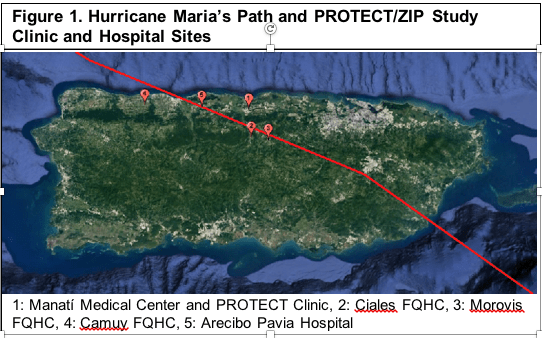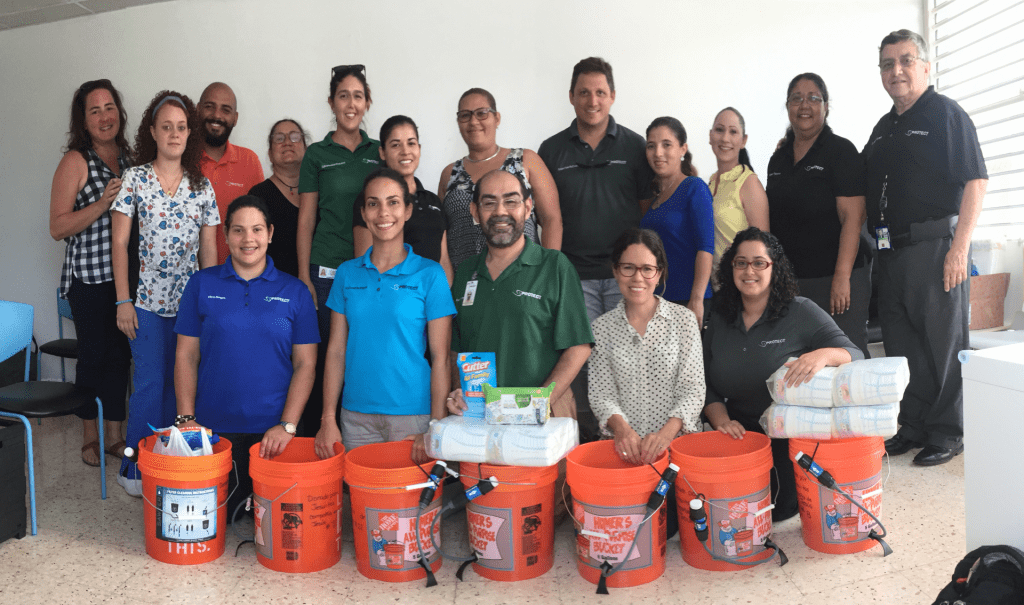One year ago, on September 20th, 2017, Hurricane Maria made landfall in Puerto Rico as a Category 4 hurricane and proceeded cross the island from the southeast to the northwest, leaving devastation in its wake. In the weeks and months that followed, CRECE and PROTECT team members in Puerto Rico reached out to provide essential supplies—including diapers, baby formula, mosquito nets, and more—as well as water filtration systems to the local communities.
While significant improvements have occurred, life is still far from normal in Puerto Rico. Power was finally restored to the entire island on August 14th, 2018—over two months into the 2018 hurricane season, and 328 days after Hurricane Maria devastated the power grid. About two weeks later, the government of Puerto Rico and George Washington University released a study updating the official fatality count to 2,975 excess deaths between September 2017 and February 2018—six months after the storm.
Now, one year after Maria, CRECE and PROTECT researchers continue to be concerned about the long-term health effects from exposure to contaminated water and air. Dr. Deb Watkins, Research Assistant Professor with Project 3, recently received funding to investigate the impacts of Hurricane Maria on pregnant women and pregnancy outcomes, including early child development. Her research will focus on women who were pregnant during the hurricane, and will assess the impacts of environmental exposures—such as contaminated drinking water and decreased air quality from gas powered generators—and stress on birth outcomes. Her study is likely the first to evaluate measures of both chemical exposure and stress both before and after a hurricane in the same population.
More recently, Dr. Michael Welton, Postdoctoral Research Associate with the Human Subjects Core, received R21 funding to conduct research on Hurricane Maria’s impacts on preterm birth on the island. His research will include PROTECT and Zika in Infants and Pregnancy (ZIP) participants, and will hone in more specifically on how the traumatic experiences of the hurricane and the prolonged recovery affected birth outcomes. This research will help to inform future post-event recovery and healthcare needs.
On the environmental side, CRECE Co-Director Dr. Akram Alshawabkeh and Project 2 leader Dr. April Gu are investigating Hurricane Maria’s impact on environmental contamination. Alshawabkeh and Gu are joined by Northeastern University professor Dr. Ameet Pinto on the NSF RAPID grant “Timely Assessment of Water Quality to Reveal the Potential Ecological and Health Impact of Hurricanes at Puerto Rico.” This project looks at the effects of Hurricanes Irma and Maria on Puerto Rico’s sewage system, by using state-of-the-art toxicity assays to test water quality toxicity at multiple time points following the storms. This research has the potential to expand understanding of contamination concerns from extreme weather events, as well as changes in the remediation and public education that follows these events.
The impacts from Hurricane Maria are likely to be felt for a long time yet. CRECE and PROTECT remain committed to working with and supporting the local community, and to leveraging the power of this ongoing study to answer important questions regarding environmental health in catastrophic weather events like Hurricane Maria.


